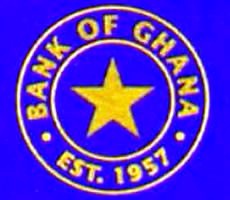The Bank of Ghana has initiated action towards the introduction of a Ware House Receipt System of financing in the country, Mr Millison Kwadwo Narh, First Deputy Governor, Bank of Ghana (BoG) said on Wednesday.
Speaking at the opening of an international seminar on Commodity Trading and Risk Management in Accra, Mr Narh said under the system, commodity-backed warrants would be issued by market participants to fund their operations.
He said the initiative would not only expand the frontiers of the banking system but also establish the requisite financial infrastructure needed to fuel the operation of the commodity exchange.
The two-day seminar organized by International FCStone Ltd, a wholly owned subsidiary of INTL FCStone Inc’s, brings together representatives from the business community, including the banking sector, the cocoa industry, grain producers, mineral producers, and governmental regulatory bodies like the Bank of Ghana (BoG) and Securities and Exchange Commission.
Some regional countries like Nigeria and Cote d’Ivoire are represented, besides multilateral institutions, including the IFC and the African Development Bank.
The interactive seminar would explore the impact of developing local and regional commodities markets and participants would gain knowledge of the development of local markets, promoting investment in commodity production and developing hedging strategies to manage commodity price risk.
Mr Narh said the commodities market in Ghana is less developed with only cocoa and crude oil, the only commodities that have well-structured market infrastructure to facilitate trading.
The absence of the commodity exchange hampers the domestic trading of commodities, affecting issues of price discovery and transparency.
“Commodity trading could form the building block for the emergence of futures markets in Ghana and other emerging economies on the African continent, ”he said.
Mr Narh said as Ghana worked on the establishment of a commodity exchange, attention must be paid to the several actors in the value chain.
“No investors would like to trade in an instrument in which the underlying asset is toxic. It is for this reason that risk management is of paramount importance to commodity trading,” he added.
Mr Narh said the seminar was timely as it came closely after the Ghana Commodity Exchange had been launched and would afford industry regulators to build capacity to confront emerging challenges.
Mr Philip Smith, the Chief Executive Officer, INTL FCStone’s Europe, Middle East and Africa operations, said the firm supports Ghana’s moves to establish a commodity market because it would bring security and transparency to the local market.
“We feel that this demonstrates the commitment of the Ghanaian government to support its growing agricultural sector, ”he said, adding that, with half the Ghanaian workforce engaged in agriculture, an investment in a commodity exchange is vital.
“International FCStone feels this is an area we can hopefully make a modest contribution to the success of this venture and the future of the sector generally, ”Mr Smith said.
International FCStone Ltd is a Category One ring dealing member of the London Metal Exchange, a full clearing member of ICE Clear Europe, CMECE and LCH EnClear, and offers clearing services on a host of global exchanges through group affiliates.
The Global Payments division of INTL FCStone Ltd is the leading institutional cross border global payments business, processing 240,000 payments annually, with volumes of $ 17 billion in 145 currencies.
Business News of Thursday, 9 July 2015
Source: GNA
BoG works on Warehouse Receipt System
 BoG logo
BoG logo
Opinions











